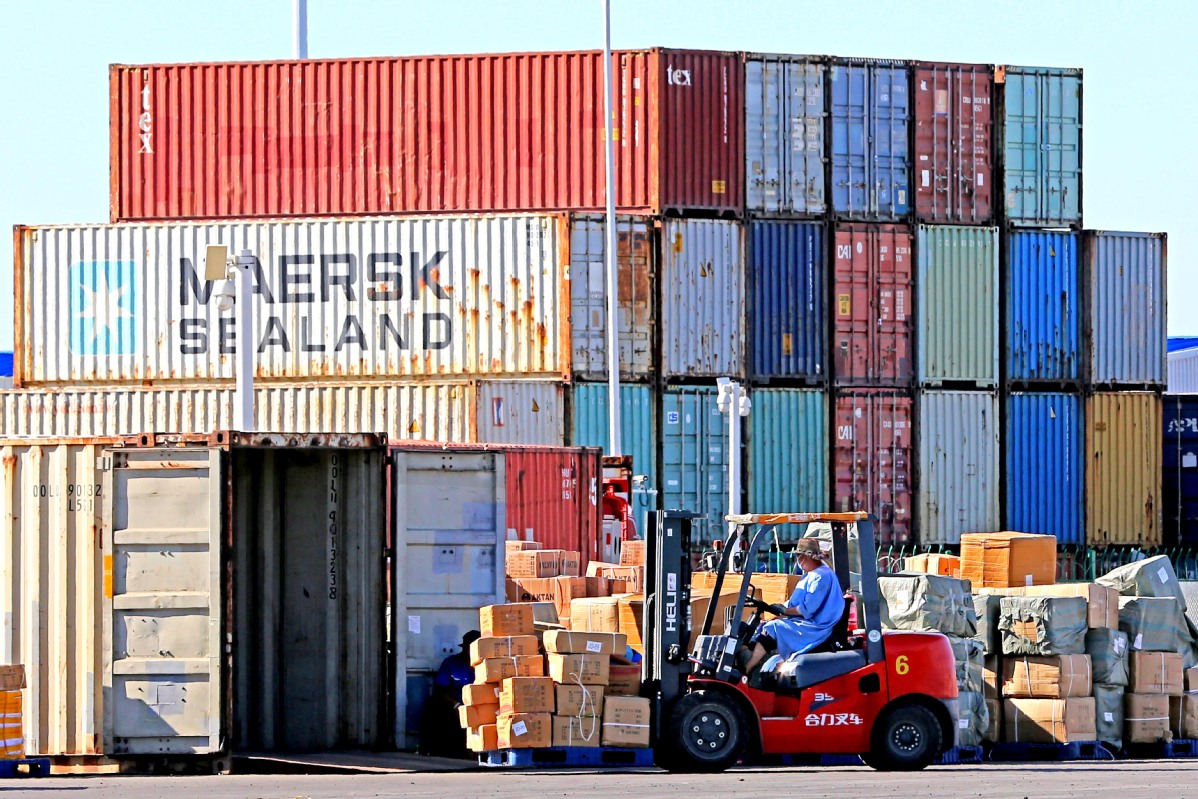US should stop smearing and sanctioning Xinjiang
By Irfan Shahzad Takalvi | China Daily Global | Updated: 2023-07-27 09:26

Propaganda and disinformation about China's Xinjiang Uygur autonomous region are falling short of achieving their objectives, as the fallacies are finding it hard — next to impossible — to overshadow the realities on the ground.
Despite the unfair and Draconian sanctions imposed by the United States, Xinjiang marches on with pride.
The latest trade data shows that Xinjiang's commerce with foreign nations saw phenomenal progress in the first half of this year, reaching 150 billion yuan ($21 billion)-an increase of more than 65 percent compared with the same period last year.
The data comes less than two months after the US subjected Xinjiang to fresh sanctions — adding five companies to the list of those already there since the beginning of this unjust, ill-founded process of curbs that began in June 2022.
The message is resounding: While the US, on a misguided pretext, blocked nearly $1.3 billion worth of Xinjiang's exports from going to US ports, Xinjiang is fostering trade ties elsewhere. The autonomous region's trade with five neighboring Central Asia states has been the major driver, growing nearly 70 percent in the first half of the year.
A lie repeated 1,000 times, no matter how forcefully, does not become a truth. Accusations of bonded or forced labor, human rights violations, fictitious "internment camps" and even "genocide "have all proved wrong. In the past year or so, numerous delegations of media, experts, diplomats and religious leaders have visited Xinjiang. They have witnessed with their own eyes, and recorded in their accounts that the region is thriving, people are happy and content, and peace and harmony prevail. The reality cannot be denied and cannot be falsified.
What objectives does the US wish to achieve with its negative approach and unjust policy toward Xinjiang? As a scholar studying Xinjiang for around two decades, and having visited the region around 10 times, I would list the following three main objectives.
First, Xinjiang is vital for the Belt and Road Initiative — particularly the "Belt" part. A peaceful, progressive, prosperous Xinjiang means the successful moving forward of the Silk Road Economic Belt. That is the key to progress and development of what I believe is the "Heart of Eurasia".
Hence, US policies vis-a-vis Xinjiang are nothing but an attack on the "Heart of Eurasia" — the status that Xinjiang has achieved. Xinjiang achieved this status for its phenomenal all-around development; anti-terror and de-radicalization policies that have made it and the region around it safe; and its rapid emergence as the hub of transregional trade and commerce.
Second, Xinjiang is a bridge between China and the Muslim world — so the propaganda, disinformation and related policies against Xinjiang are aimed at turning it into a "wall" between the two sides.
Third, US policymakers may have the feeling that much of China's emergence as a leader in new energy — and specifically solar power — is due to Xinjiang. So in the quest to deprive China of global leadership in the field of emerging energies, this game of "forced labor" and "genocide" is being played so unimpressively.
Yet a new wave of attacks looms large and unrelenting. US officials are making their intentions clear. Robert Silvers, undersecretary of the US Department of Homeland Security, has said that "adding more (Chinese) entities" to the list of those under sanctions is a "priority" this year. He added that the second priority is to ask more countries such as European Union nations, Japan, Australia, India and others to follow suit.
How many would be cajoled into doing so, and to what extent, remains to be seen. But the game plan is certainly entering a crucial stage. The more that Xinjiang is successful, the more will be the intensity of attacks on it. However, such efforts targeting Xinjiang — which are aimed at depriving the Uygurs and other ethnic minority groups in particular, and China in general, of the right to development, progress and a peaceful living — are bound to fail.
Research and studies, including some in the US itself, have made it clear that economic sanctions fail to achieve their noneconomic, political and strategic objectives. Sanctions do pinch, but many times they pinch the wrong people. No wonder some in the US business community are raising voices against the approach, feeling the heat gradually engulfing their own commercial interests.
Policymakers of the US and its allies would do themselves and the world a favor by reconsidering and reversing this approach, which has proved faulty and ineffective, showing no signs of being successful in the case of Xinjiang. The sooner this is realized the better, for the US, Xinjiang and the world.
Other nations, particularly those of the region around Xinjiang and those along the Belt and Road routes, must be clear that their own progress is linked, to a large extent, to peace and progress in Xinjiang. Together we grow — that must be the mantra.
The author is founding president of the Eurasian Century Institute in Islamabad, Pakistan. The views do not necessarily reflect those of China Daily.
























